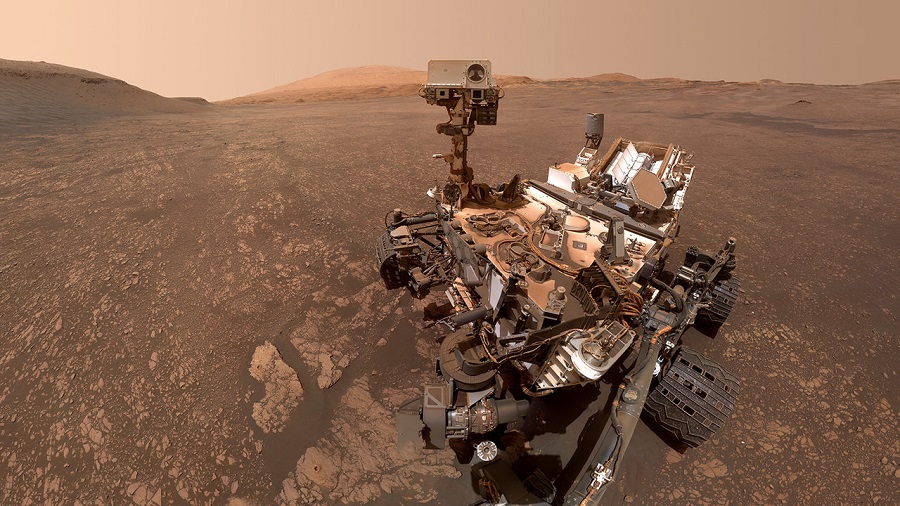
The findings are based on data from NASA's Curiosity Mars rover which continues to explore the base of Mount Sharp on the Red Planet. (NASA)
New York, April 9
Mars had drier and wetter eras before drying up completely about three billion years ago, says a new study which suggests that the Red Planet did not dry up all at once.
The findings are based on data from NASA's Curiosity Mars rover which continues to explore the base of Mount Sharp on the Red Planet.
"A primary goal of the Curiosity mission was to study the transition between the habitable environment of the past, to the dry and cold climate that Mars has now," said Roger Wiens, a coauthor on the paper and scientist at Los Alamos National Laboratory, where he is on the ChemCam team.
"These rock layers recorded that change in great detail," Wiens said.
ChemCam is the rock-vaporising laser that sits on the mast of the Curiosity rover and analyses the chemical composition of Martian rocks.
William Rapin, a researcher with the French National Centre for Scientific Research (CNRS), led the study published in the journal Geology.
Using the long-range camera on ChemCam to make detailed observations of the steep terrain of Mount Sharp, a team including Wiens and other researchers at Los Alamos discovered that the Martian climate alternated between dry and wetter periods before it went completely dry.
Spacecraft in orbit around Mars had previously provided clues about the mineral composition of the slopes of Mount Sharp.
Now, ChemCam has successfully made detailed observations of the sedimentary beds from the planet's surface, revealing the conditions under which they formed.
Moving up through the terrain, Curiosity observed that the types of bed change drastically.
Lying above the lake-deposited clays that form the base of Mount Sharp, sandstone layers show structures indicating their formation from wind-formed dunes, suggesting long, dry climate episodes, said the study.
Higher up still, thin alternating brittle and resistant beds are typical of river floodplain deposits, marking the return of wetter conditions.
These changes in terrain show that the climate of Mars underwent several large-scale fluctuations between wetter and dryer periods, until the generally arid conditions observed today took hold. IANS
Join Whatsapp Channel of The Tribune for latest updates.



























